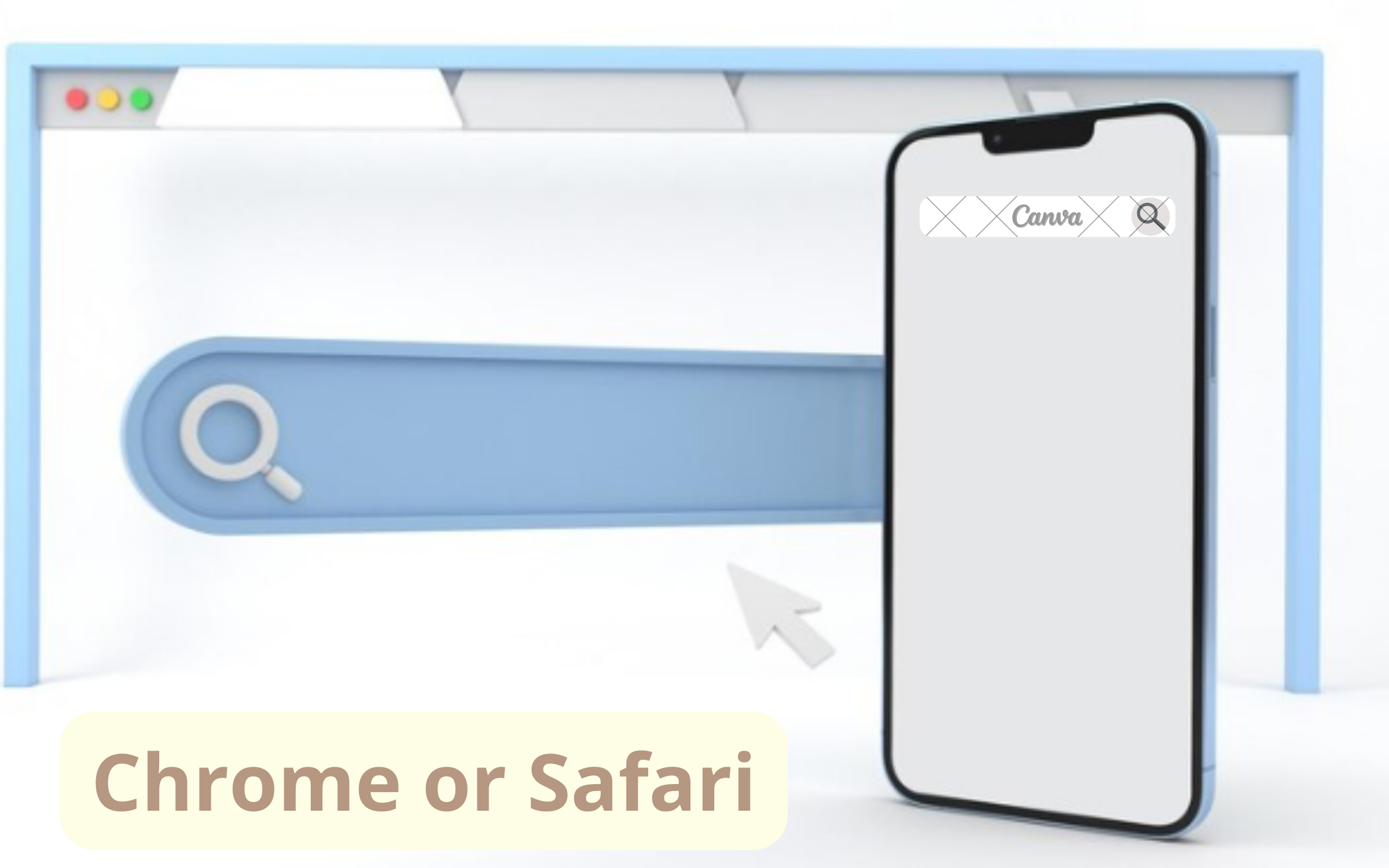The age-old debate between Chrome and Safari rages on, especially for iPhone and Mac users. With both browsers offering unique features and benefits, it can be challenging to decide which one is best suited to your needs. Whether you’re a power user or just looking for a reliable browsing experience, the choice between the two is not an easy one. In this article, we’ll take a closer look at Chrome and Safari and compare their features, performance, and user experience. From speed and security to customization and compatibility, we’ll cover everything you need to know to help you make an informed decision. So, if you’re wondering which browser reigns supreme for iPhone and Mac users, keep reading to find out!
Chrome vs. Safari: What’s the difference?
Chrome is a web browser developed by Google. It was first released in 2008 and has since become the most widely used browser worldwide. Safari, on the other hand, is Apple’s web browser, and it comes pre-installed on all Apple devices. Chrome and Safari have some fundamental differences in their design philosophy and features.
Chrome is known for its clean and minimalist design, which allows users to focus on the content of the web page. It also has a large collection of extensions and apps that enhance the browsing experience. Safari, on the other hand, has a more traditional design that is consistent with the overall Apple design philosophy. It also has some unique features, such as the ability to sync with other Apple devices.
Which browser is Better for iPhone and Mac? Chrome or Safari?

Safari (Default browser on Apple devices):
Pros:
- Seamless Integration: Safari is optimized for Apple devices, offering a smooth and integrated browsing experience across iPhone, iPad, and Mac. It syncs well with other Apple apps and services, such as iCloud Keychain for password management.
- Performance and Efficiency: Safari is known for its excellent performance and energy efficiency. It is designed to maximize battery life on Apple devices, making it a favorable option for users concerned about power consumption.
- Privacy and Security: Safari prioritizes user privacy and security. It includes features like Intelligent Tracking Prevention, which blocks third-party trackers, and enhanced protection against malicious websites. Safari also supports iCloud Private Relay, a feature that adds an extra layer of privacy when browsing.
Cons:
- Limited Cross-Platform Support: Safari is primarily designed for Apple devices, so its availability on non-Apple platforms (such as Windows or Android) is limited. If you regularly switch between devices, this could be a drawback.
- Extension Availability: Although Safari has a decent selection of extensions, it may not have as extensive a library as Chrome. Some extensions that are available for Chrome may not be available for Safari.
Google Chrome:
Pros:
- Cross-Platform Support: Chrome is available on various platforms, including iOS, macOS, Windows, and Android. It offers a consistent browsing experience if you use multiple devices or switch between operating systems.
- Extensive Extension Ecosystem: Chrome has a vast library of extensions and add-ons, offering users a wide range of customization options and additional functionality. If you rely on specific extensions for productivity or entertainment, Chrome may be a better choice.
- Google Integration: If you use Google services extensively (such as Gmail, Google Drive, or Google Docs), Chrome provides seamless integration and synchronization across those services.
Cons:
- Performance and Battery Impact: Chrome is known for being resource-intensive, potentially leading to higher memory usage and reduced battery life, especially on mobile devices. While it has improved over time, it may still have a slightly higher impact compared to Safari.
- Privacy Considerations: Google Chrome is developed by Google, a company known for its data collection practices. Although privacy settings can be adjusted, some users may have concerns regarding the collection and use of their data.
In summary, if you prioritize seamless integration with Apple devices, optimized performance, and privacy features, Safari is a solid choice. On the other hand, if you prefer cross-platform support, a robust extension ecosystem, and integration with Google services, Chrome might be more suitable. Ultimately, it is recommended to try both browsers and determine which one best aligns with your specific needs and preferences.
However, Safari has some limitations as well. Firstly, it has a limited collection of extensions compared to Chrome. This can be a disadvantage for users who rely on extensions to enhance their browsing experience. Secondly, Safari does not support all web technologies, which means some websites may not work correctly on it. Lastly, Safari’s interface can be a bit cluttered and may not be as visually appealing as Chrome’s.
Chrome extensions for iPhone and Mac users
One of the significant advantages of Chrome is its large collection of extensions. These extensions can add new features and functionality to the browser, making it more powerful and versatile. Here are some of the best Chrome extensions for iPhone and Mac users:
- AdBlock Plus: This extension blocks all ads on the web, making browsing faster and more enjoyable.
- LastPass: This extension securely stores your passwords and automatically logs you into websites.
- Grammarly: This extension checks your grammar and spelling as you type, making it an excellent tool for writers.
- StayFocusd: This extension helps you stay productive by limiting the time you spend on distracting websites.
- Pocket: This extension lets you save articles and web pages for later reading.
Safari extensions for iPhone and Mac users
Safari may not have as many extensions as Chrome, but it still has some excellent options for users who want to enhance their browsing experience. Here are some of the best Safari extensions for iPhone and Mac users:
1. 1Password: This extension securely stores your passwords and logs you into websites automatically.
2. Pocket: This extension lets you save articles and web pages for later reading, just like in Chrome.
3. Grammarly: This extension checks your grammar and spelling as you type, just like in Chrome.
4. Honey: This extension automatically finds and applies coupon codes to save you money while shopping online.
5. Ghostery Lite: This extension blocks trackers and protects your privacy while browsing the web.
Speed and performance comparison
When it comes to speed and performance, both Chrome and Safari are excellent options. However, Safari has the edge when it comes to overall performance on Mac devices. This is because it is optimized for Apple’s hardware and takes advantage of features such as hardware acceleration. On the other hand, Chrome may be a better option for users who have older devices or slower internet connections. This is because it has a more efficient caching system that can help reduce page load times.
Security features comparison
Both Chrome and Safari have robust security features that can protect users from online threats. However, Safari has some additional features that make it a more secure browser. For example, it has a built-in feature that blocks third-party cookies by default. It also has a feature called Intelligent Tracking Prevention, which blocks trackers and protects user privacy. Chrome, on the other hand, has a feature called Safe Browsing, which warns users when they visit potentially dangerous websites.
User interface comparison
When it comes to user interface, both Chrome and Safari have their strengths and weaknesses. Chrome has a clean and minimalist design that allows users to focus on the content of the web page. It also has a more customizable interface, allowing users to change the appearance of the browser to suit their preferences. Safari, on the other hand, has a more traditional design that is consistent with the overall Apple design philosophy. It also has some unique features, such as the ability to see all open tabs in a single window.
So, which browser is better for iPhone and Mac users? The answer depends on your needs and preferences. If you rely on Google’s ecosystem and use a lot of extensions, then Chrome may be the better option for you. However, if you rely on Apple’s services and want a more secure and integrated experience, then Safari may be the better option.
Conclusion
In summary, both Chrome and Safari are excellent browsers, and the choice between the two comes down to personal preference. We hope this article has helped you understand the differences between the two and has given you the information you need to make an informed decision. Whether you choose Chrome or Safari, we’re sure you’ll have a great browsing experience.






